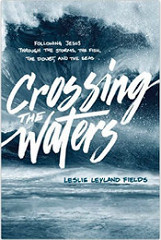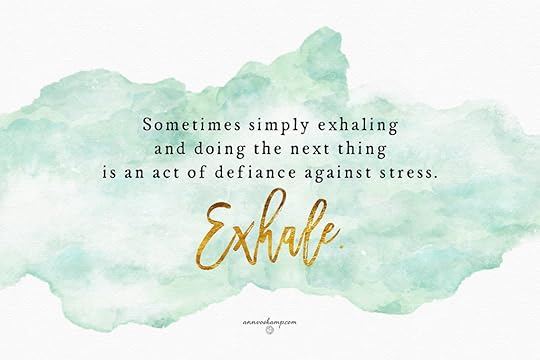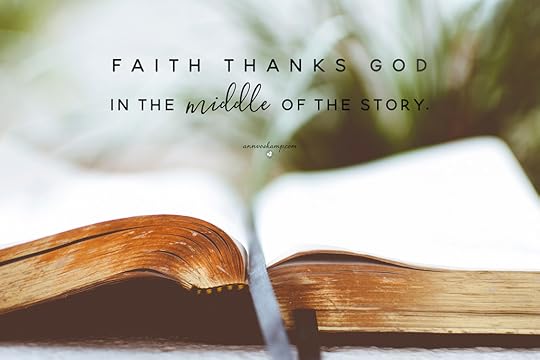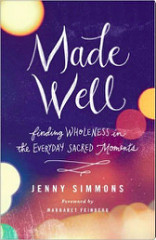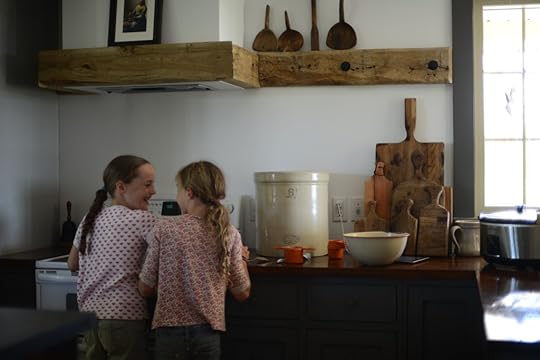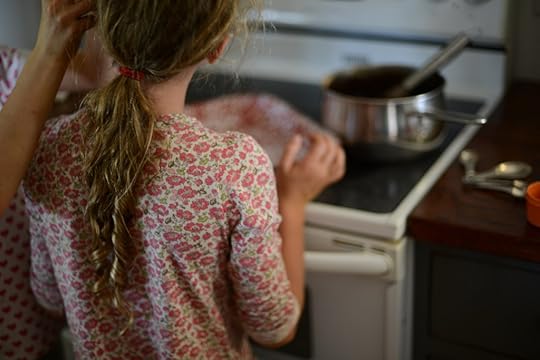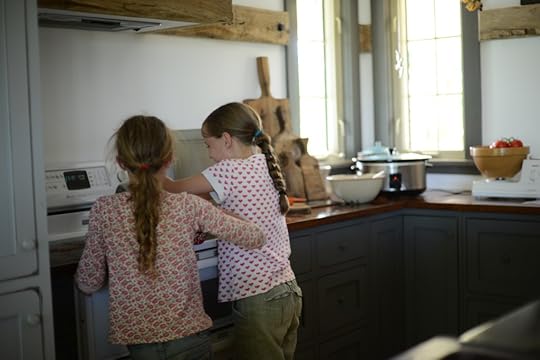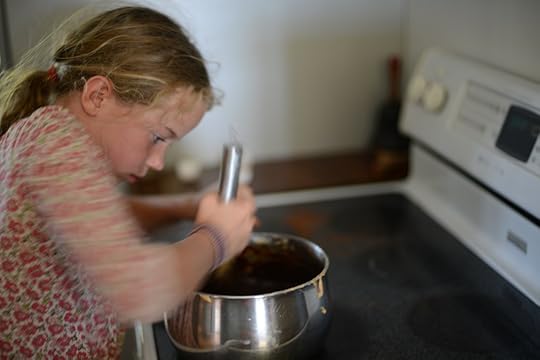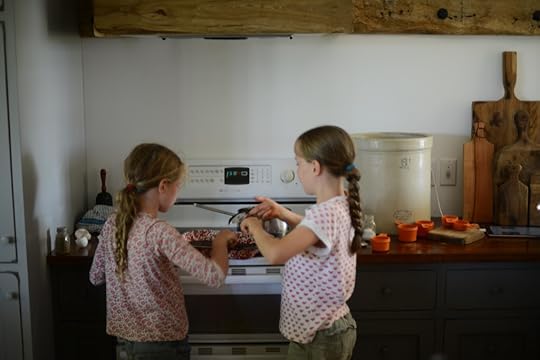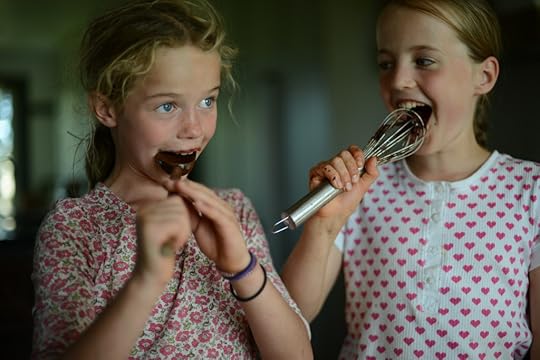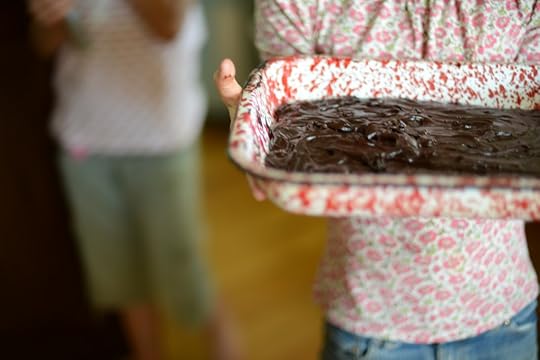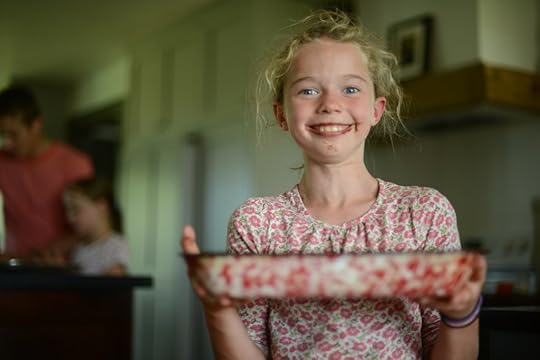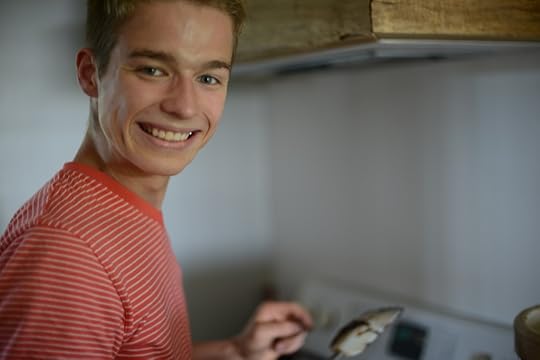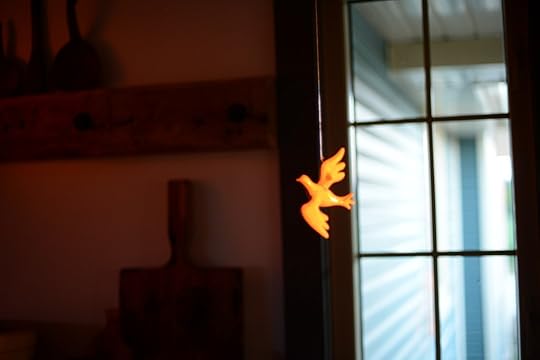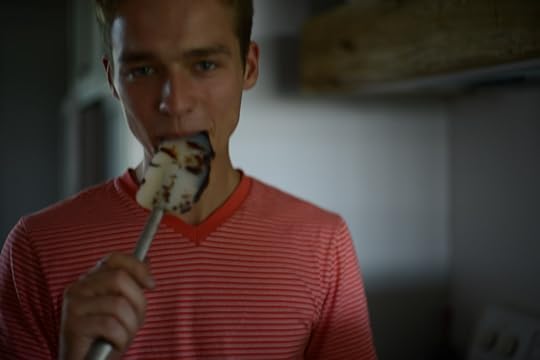Ann Voskamp's Blog, page 162
October 3, 2016
Links for 2016-10-02 [del.icio.us]
Our #1 Best-Selling Drone--Meet the Dark Night of the Sky!

September 30, 2016
then there was a handful of light: about scars & shame & being brave
I get to lie right next to her every night.
Sometimes we have to pull close, to loan each other courage to reach through the dark and find what we need.
Rubbing her back in these small, slow circles feels like polishing down the day to the essence of grace.
She reaches up her little hand — “Mama? Back? Back?” And she rests her hand on my back.
Her tiny palm slides back and forth across the small of my back — like grace given always comes back to find you, hold you.
She feels like hushed holiness in the dark and I don’t move.
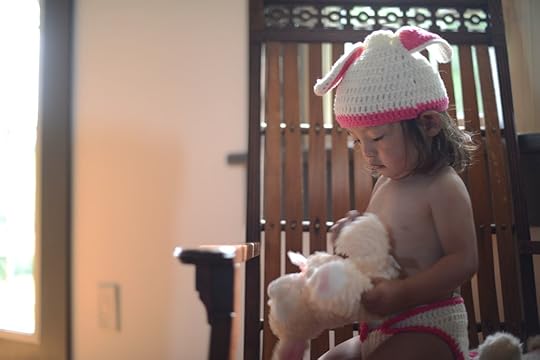
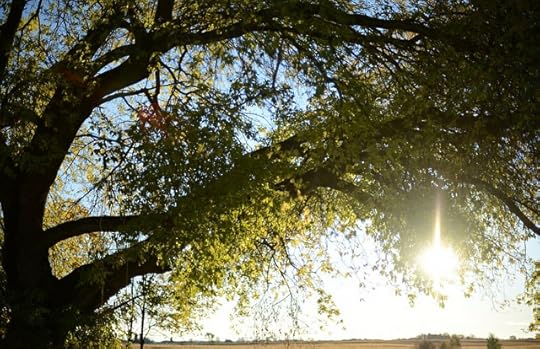
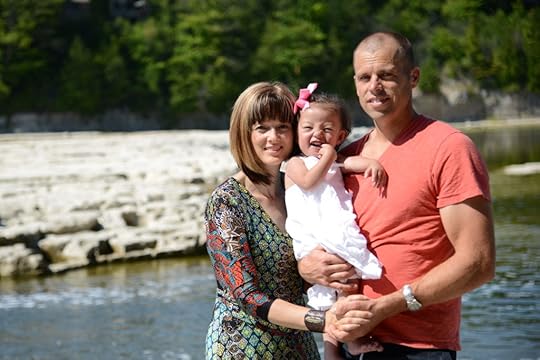
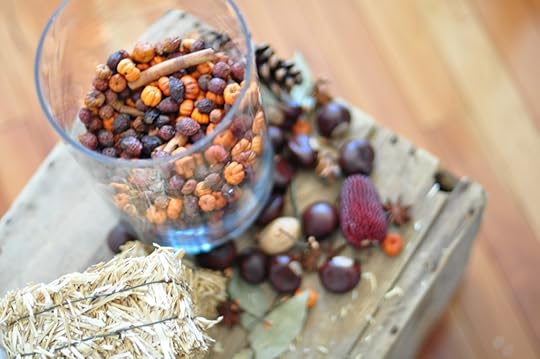
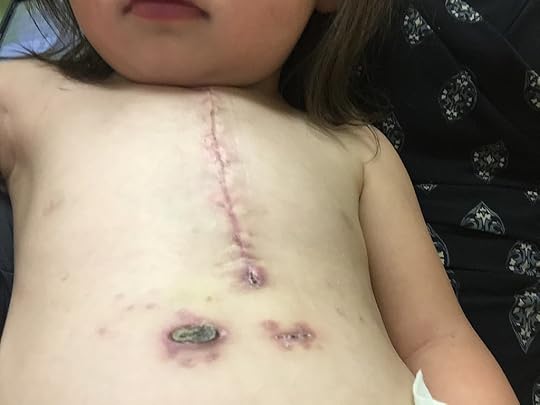
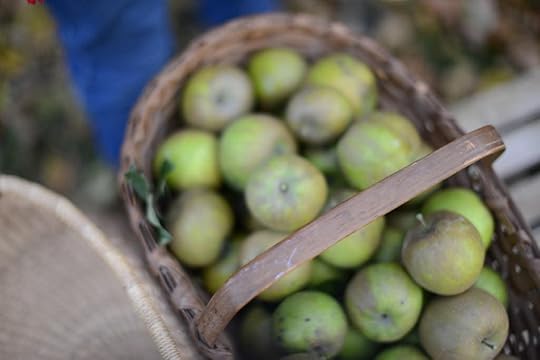
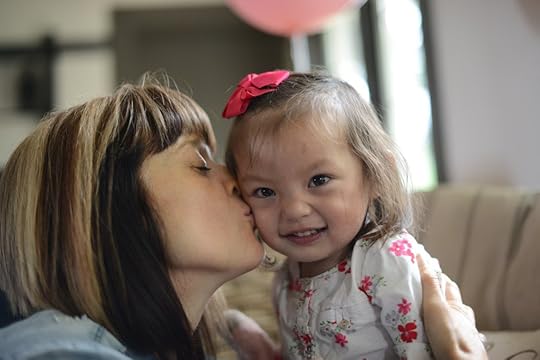
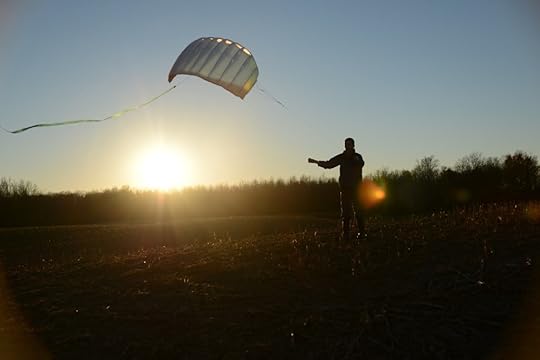
She had came terrified and heartbroken to us, 10,000 km across the top of the world, and her eyes were so wide, like if she looked hard enough, enlarged herself enough, she would find her safe.
For months, I’ve rocked and held and stayed closest and her and I, we’ve bonded into a kind of courage. And now she rubs my back in the dark and I rub hers and I memorize this. Safe places are your very own miracles that hand you comfort in one hand and courage in the other.
Her hand rests on me and mine on hers.
“Mama? Mama?” She pats my arm. And when I look up, she takes her hand, and pulls up her shirt, and runs her fingers up and down the raised purpling scar that splits her chest.
“Brave.”
She says the word in the dark. She says it over and over again.
She’s tracing her scar.
“Brave. Brave.”
I’ve always called the evidence of her open heart surgery, her brave scar… but she’s just calling it? Her brave.
Yes, Broken Hearted —- your scar is proof of your brave.
And you don’t have to be ashamed of it, you don’t have to hide it, you don’t have to pretend it doesn’t exist. You can pull back your shirt any time and show me, a hundred times a day, you can take my hand and ask me to trace your brave. Because I have found this in all the dark: We are all called to be witnesses. Trust me, life testifies that this is what it’s all about: We are all called to be witnesses.
I touch her scar and whisper it with her, witness it with her: Brave, Brave.
Never be ashamed, Broken Hearted, never be ashamed.
Shame dies when stories are told in safe places.
Shame poisons hope — poisons hope that things can change. That we can ever be changed, ever be accepted, ever be good enough.
You can trace those scars and let it feed your courage and feel no shame for the wars you’ve come through, no shame for any of your broken because:
Shame eats souls.
I believe it, and touching her scars, there’s C.S. Lewis:
“Don’t you think the things people are most ashamed of are things they can’t help?”― C.S. Lewis
Sometimes — and there really are times — that you can’t help where you’re broken, you can’t help how the story turned out, you can’t help how things fell apart and you got banged and busted up. And shame about the things you can’t help — helps you the least.
I can trace the truth of it:
Shame of scars can scar worse than the original scars.
Shame of being broken can break us worse than being broken.
And I wish it hadn’t taken me so long to know, but I’ve felt it in the marrow of my bones:
We can live with the pain of brokenness… what can slay us is the shame of brokenness.
Maybe on the days we want out of our lives — it isn’t so much that we want to die from shame, but hide from shame.
She pats her scar like it’s a kind of medal, a kind of memory.
Shame gets unspeakable power only if it’s unspeakable.
“Brave,” she says it again.
And I nod, kiss her forehead. “Yeah — crazy brave, girl.” I want to write it right into her scars:
You know what?
Your scars are proof that you’re a kind of bulletproof.
Proof that that He’ll carry you through anything, get you through everything, so you can be stopped by nothing. Scars are proof that you can now weather any storm because Jesus didn’t just calm one storm but all storms and these scars are proof that you’re a kind of bulletproof because living through the hardest battles proves you can live through any battle.
Your scars — the worst nightmares that you survive — prove you’re a kind of kevlar.
“Hug? Hug?” She whispers. Then flings both arms of hers around my neck, her chest scar pressing up against me — her brave touching me. We loan each other the courage of stars, the bravery to be.
I pull her in closer, and brave can feel like a thousand things. Scars may come, but shame never has to.
I can feel it, right next to me, her brave breaking into a flame igniting the night.
Related: our story of breaking free

September 29, 2016
how to cross the waters: when you’ve got Affliction & want Bounty
I’m telling you, this woman, is a kind of brilliant and her words never fail to ignite. Leslie Leyland Fields is my sister-friend who works the Alaska ocean with her husband and six children as we work the Canadian fields—with our hands and our hearts. There, her 38 salmon-fishing seasons off a wilderness island have taught her much about what it means to follow Jesus. In this excerpt from her newest book, Crossing the Waters: Following Jesus through the Storms, the Fish, the Doubt and the Seas, Leslie is out in the fishing boat with her daughter wondering if teaching her to fish was a mistake. It’s a grace to welcome Leslie to the farm’s front porch today…
guest post and photos by Leslie Leyland Fields
I am out tonight on the ocean with my daughter, Naphtali, 25.
It’s a slow night on the water. I’m thankful.
I don’t have the energy tonight for battling high seas or too many fish.
I want to focus on her, on this time together.
Since she left home in Kodiak, Alaska for college eight years ago, our days together are few.
I look around me. Not many fish likely tonight, but it’s a jellyfish night, or rather, a jellyfish week. The ocean is thick and mucus-y with them, these Aurelia aurita, moon jellyfish, the clear kind that look like ocean water plus Knox Gelatin, with a little hyphenated cross as its entrails.
Their omnipresence doesn’t stop the work.
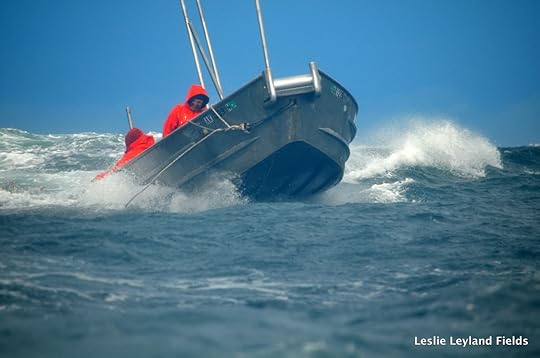
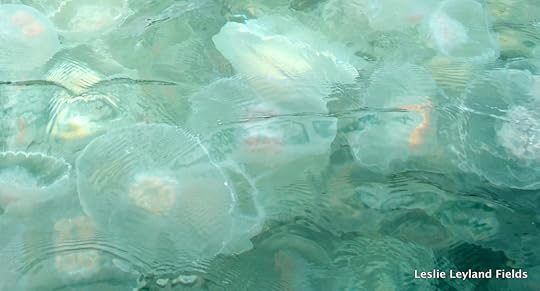
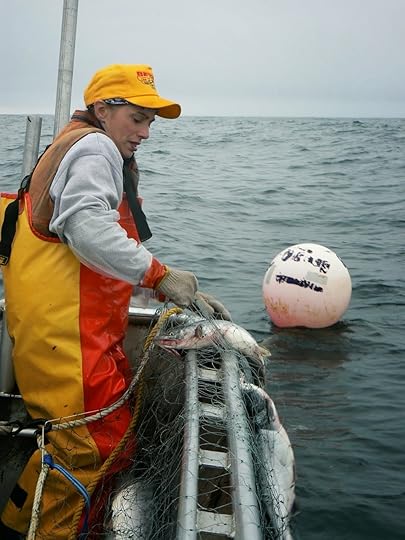
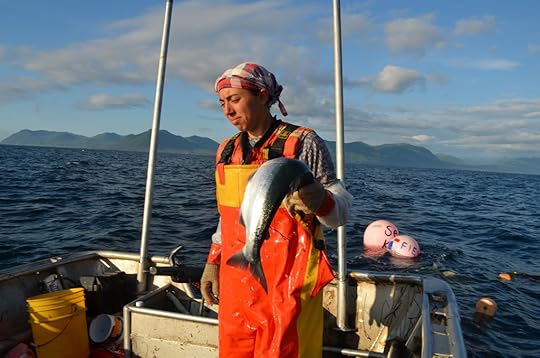
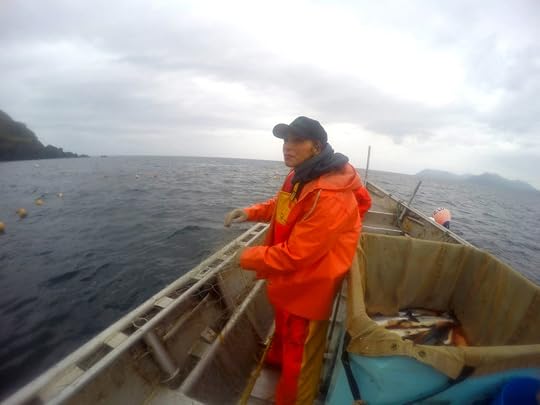
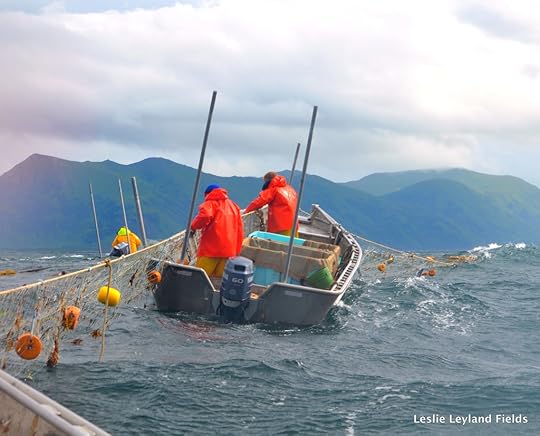


Naphtali, her hair bound in a bandana, her huge green eyes vivid in a deeply tanned face, concentrates on the net. She motors forward through the net, as a steady stream of jellies slop through the bow roller into the skiff, our 26′ open boat.
The floor of the skiff is now just a mass of congealed water and little broken crosses I have to stand on and in.
I don’t mind these. They feel somewhat antiseptic, and even holy, with a holy-ghost body.
But other jellyfish come with them, these giant glops of oranges, pinks, rusts, as large as sinks, even bathtubs at times, their stinging strings like snot trailing behind.
They’re bagged in the net and as we move forward, they’ll slide into the boat, at my feet, and travel the length of the skiff. We lift our hands as they pass, narrow our eyes to protect our faces and skin from errant splashes of acid until each one disappears off the stern with a slurp.
Sometimes one of us will get enough in our eyes to leave the nets and go ashore, slogging painfully up the hill to the house and the medicine shelf, where the eyewash waits.
The tide is twenty-one feet today, which means everything in the water, including us, is stretched taut as wires. We’ll have to muscle through the nets these next few hours, using timing, our weight, every fiber of our biceps and deltoids to get the work done. The other skiffs are manned by men half my age and twice my weight.
Sometimes I look at my daughter and wonder, what have your father and I given to you?
She never wanted to run a skiff. Running a skiff makes you captain of a small ship. You preside over one or two crewmen: their lives are in your hands as you travel your boat straight into convulsed, tide-ripping storms.
In the midst of those storms you have to fish and work as if there were none. Running a skiff means you will work eight to fifteen hours every day through every summer.
It means you will be a girl in a world of men, and expected to work like a man. And so it has been.
But we needed her to run a boat. She needed the money for college.
She couldn’t quit or leave. She did not choose this life. It was chosen for her.
Neither of us will forget the seasons of ache, hurt and fear. Have we given you bread or a stone, daughter? A fish or a serpent? I am not sure.
I don’t know how long she’ll keep returning. When she was seventeen, at the start of the season, she stood before me in her orange raingear, hands clenched. “I can’t do this anymore, Mom.”
I looked at her helplessly. At the end of the previous season, Naphtali’s hands were so swollen from picking countless thousands of fish, when she returned to school she couldn’t hold a pencil. After grad school, maybe she’ll never return. But tonight, as I watch her in the skiff, I am amazed.
On these stormy waters that test the bodies and souls of men, she is competent, strong, fearless.
She tells me what to do in clipped phrases, and I do it, trusting her.
Is it possible that even the stones are a form of abundance?
Is it possible that maybe this world is a place of such surfeit, such unending provision, such upside-down bounty that what is given up and given away is not lost?
I first glimpsed this upside down economy when I raised my hand that day in a white country church and said, “Pick me, Jesus!” and when I followed Duncan here to this island.
The Alaska sky and mountains and sea were so vast and clean, so full of breath and drama my hopelessness was washed away.
And was it the same for them as well, those first disciples? After the wedding in Cana, where Jesus turned water into the finest wine, the disciples followed Jesus to that hillside, where a ward of wounded, sorry, hungry, limping people thronged, and they were healed, the worst and best of them.
They marveled. This teacher did so much more than teach! No other rabbi did this—put hands on bodies and cured them whole!
It was almost too good to be real, too good to trust, but there they were, all these giddy ones healed under his touch. No matter what came next, were they all not healed? Could anyone else have done this, ever? This shouting laughing hillside then must be the “kingdom of God”!
And there I was, just over twenty, in a skiff beside my new husband, the two of us moving from net to net, pulling salmon from the depths of a green sea, fish so glittering our boat sparkled in the sun.
Were we not all clothed as beautifully as the lilies? After every net, Duncan would lean his wet nose down to mine and kiss me, so glad I was now part of his world. And I kissed him back, this man who smelled of salt water and fish. I kissed him back.
Me, this girl learning how to love, becoming a wife and a fisherman and maybe even a follower of Jesus all at the same time.
Those fishermen and the other followers did not know yet what would come of their new life.
They did not know exactly what this new kingdom would look like.
They had some ideas. They knew the scrolls. They knew they were the persecuted and reviled.
They prayed daily for God to return to His people and to restore their nation’s fortunes and power.
Nothing like that had happened yet, but already they were glad. Glad! Wine and healing! Dancing and running! Teachings with authority!
All of us—the disciples, me, my daughter, all of us who raise our hands, who move our feet, who walk behind or beside Him, there we are on the sea, in a boat, or on the hillside running with new sturdy legs marveling—what is this new place?
Even a wedding won’t run out of wine, and a man who could be the Messiah tells us all to “ask, seek and knock,” that our Father will give us gifts just for the asking.
Can heaven really be this open and this close?
And look, my daughter, at all that you can do.
Look at all I have done and am not done doing.
In this new kingdom, even with stones in our pockets, cannot a jellyfish, or even a snake—still bring life?
Have we not all been given bread and fish after all?
Crossing the Waters: Following Jesus through the Storms, the Fish, the Doubt and the Seas is Leslie Leyland Fields’ tenth book. Others include Forgiving Our Fathers and Mothers, and The Spirit of Food. When she isn’t fishing, speaking or writing, you’ll find her on her island picking rose petals for jam or creating a new recipe with her favorite food—Alaska salmon.
In Crossing the Waters, you’ll be swept up in a fresh experience of the gospels, traveling with the fishermen disciples from Jesus’ baptism to the final miraculous catch of fish―and also experiencing Leslie’s own efforts to follow Christ out on her own Alaskan sea. In a time when so many are “unfollowing” Jesus and leaving the Church, Crossing the Waters delivers a fresh encounter with Jesus and explores what it means to “come, follow Me.” This book does not disappoint but profoundly delivers.
[ Our humble thanks to Tyndale for their partnership in today’s devotion ]

September 27, 2016
Links for 2016-09-26 [del.icio.us]
Our #1 Best-Selling Drone--Meet the Dark Night of the Sky!

September 26, 2016
how to unexpectedly multiply the good things in your life
You know, when we think about the unexpected reason why we really get out of bed in the morning? When we sit with that, how what you are in love with decides what you live for, how ‘Love decides everything — which is another way of saying, Sacrifice is the essence of everything‘— it kind of changes everything. Which is exactly what stumbled into. When the news announced the tragedy of a dead baby abandoned in a local dumpster, Linda was sure she heard God asking her to provide a dignified burial for this tiny lost child. From her comfortable suburban couch, she said yes. Linda had no idea how much her life would change in the years to follow. But that’s what happens when you follow God’s lead: He takes you places you never dreamed of going—all for His glory. The ripple effects of her first yes continue to widen in ways she never expected. It’s a grace to welcome Linda Znachko to the farm’s front porch today…
“Every time a vulnerable life is honored, other unlikely lives are touched.”
I flipped on the evening news as I cut some veggies for dinner in my kitchen.
The evening news anchor announced somberly, “Two people were killed in a school bus crash today on South Emerson Avenue: sixty-year-old bus driver Thomas Spence and five-year-old Donasty Smith.”
A five-year-old.
The crash happened around 7:40 a.m., and throughout the day reporters had pieced together what information they could.
With all fifty students safely on board, the bus had approached an underpass that dipped under railway tracks.
The bus should have slowed down to navigate the slim passage, but a driver behind Bus 439 witnessed it speed up, veer toward the center divider, and crash into the cement wall between lanes.
A man in oncoming traffic saw sparks flying as the bus scraped across the abutment.


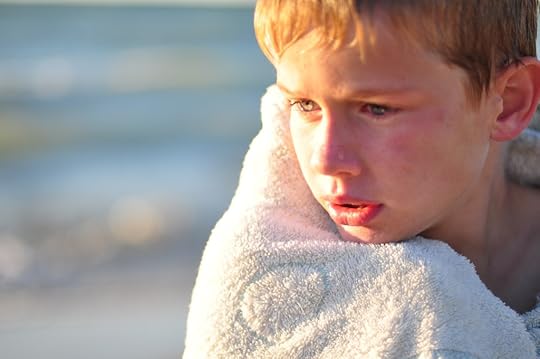
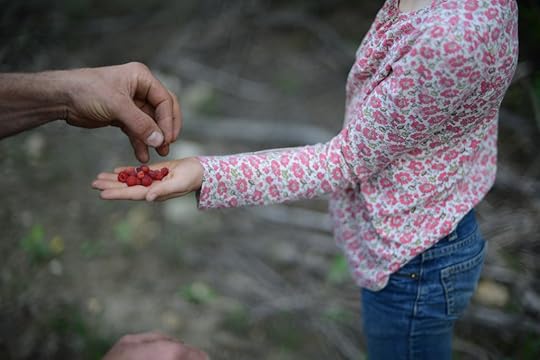
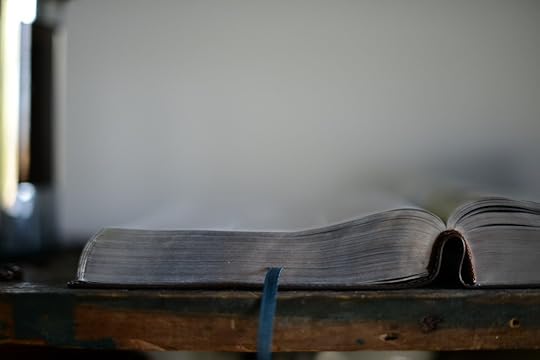
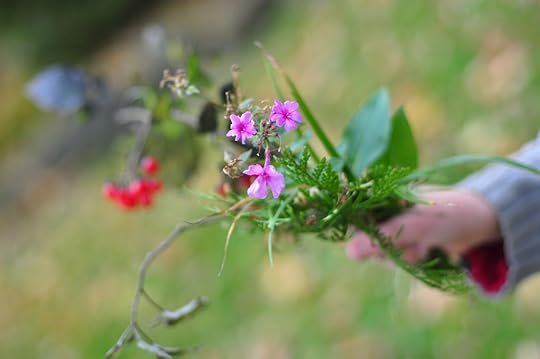

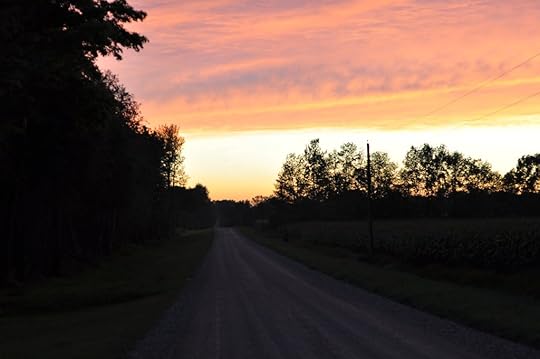
Video on the evening news showed that the driver’s side of the front of the bus had crumpled. Some witnesses reported seeing smoke billowing out of the vehicle. Witnesses immediately rushed to the bus to help students get out.
Both the driver and a child at his feet were unresponsive.
It seemed absurd that I could be preparing dinner for myself, my husband, and my daughter while some other parent would have one less child at her dinner table.
The previous spring I’d received a call from the director of the small charter school. His number was still in my phone.
I abandoned my dinner preparations, dialed, and identified myself.
“If there is any way you can connect me with that family and give them my number, I’d like to see what they need,” I offered.
Willing, he agreed to do it.
And then, more quietly, he added, “Donasty was sitting in a seat with her eight-year-old sister, Erielle. Erielle saw her fly through the air and land on the bus driver, under the steering wheel.”
I received a call from the girls’ mother, Danyelle Smith, two days later. She had chosen a funeral home and a cemetery. The administrators at the funeral home had given her a deadline by which to have the burial, but there was still some confusion and holdup about moving forward.
The family chose New Crown Cemetery so that Donasty could be buried with Danyelle’s brother, who had been killed as a young adult.
It was a double vertical plot, meaning that Donasty’s body would be buried above her uncle’s. Because the plot had not been paid off at the time of the first burial, the family now owed $900 for the brother’s bill, before paying for Donasty’s. They also needed to be responsible for the costs of the opening and closing of the grave.
They didn’t have the money.
I wanted to advocate for this heartbroken family with the owner of the cemetery.
I wanted to find a solution that would be a win for Danyelle and a win for New Crown Cemetery.
I was confident we could.
My husband negotiates for a living, and his whole business philosophy comes down to two words: “win, win.” If only one person wins, he says, it’s not negotiating; it’s debating.
Everyone should walk away from the table feeling that there’s been a benefit for them. There’s a lot of integrity in that. It’s what I have drawn on in conversations with the owner of this cemetery and so many others.
But I was also bringing something uniquely my own to that bargaining table: my mother bear instinct. Families like Danyelle’s are living through unimaginable tragedy.
So part of my calling is to fight for these wounded ones.
I called the cemetery and asked if I could speak not with the administrator but with the owner of the cemetery. When I had him on the line, I suggested that rather than taking our business elsewhere—which, of course, I privately knew Danyelle didn’t want to do—the cemetery could forgive the original debt and allow me to cover the expenses for Donasty’s burial. Win, win.
They agreed.
All along this journey, I’ve seen this principle at work: doing good elicits good.
I’ve also noticed that sinful responses from broken people generate more of the same.
For instance, when tragedy is reported in the news with a filter that demonizes others, it breeds criticism and judgment.
Seeking to make sense of a tragedy that is senseless, people assume the victim must have been a bad kid, a delinquent, or had a mother who didn’t care. Anger, judgment, and violence breed more of the same.
But of course, the flip side is also true.
When you do good, you bring out the best in others.
As a result of saying my little yeses to God, I’ve seen it time and time again.
Strangers show up to support grieving parents.
A ministry will message me on Facebook to provide gowns.
Another a headstone.
And what thrills me the most is when people recognize a need themselves—a couple bearing unspoken grief for a child lost years ago, a mom laden with grief after an abortion, a sibling who never knew an older “phantom” sibling—and step in to help.
I never expect for that engagement to look exactly as it looks for me.
Maybe a man will simply honor a child’s memory by asking to know her name.
Maybe a woman will pray with a family as a mediator of God’s active living presence.
Maybe a family, in honor of a lost child, will work toward legislation like Indiana’s recent Baby Box law, which expands safe-haven laws that allow parents to surrender newborns without fear of prosecution.
In encounter after encounter I continue to see that working as an agent of redemption elicits what is good and kind and generous in others.
Graciousness multiplies.
is the founder of , which exists to honor every child with a name in life and dignity and honor in death. When tragedy strikes, Linda follows God’s leading to connect grieving families with needed resources.
The incredible story of how Linda came to found her ministry is recounted in her new book He Knows Your Name: How One Abandoned Baby Inspired Me to Say Yes to God. It’s an astonishing example of how God’s ways are not our own—they’re far more powerful.
[ Our humble thanks to in today’s devotion ]

September 24, 2016
Only the Good Stuff: Multivitamins for Your Weekend [09.24.16]
Happy, happy, happy weekend!
Some real, down in the bones JOY to celebrate today! Links & stories this week 100% guaranteed to make you smile a mile wide & believe like crazy in a Good God redeeming everything — and that there’s love everywhere & for ((you))!
Serving up only the Good Stuff for you right here:
Dirk Dallas via fromwhereidrone.com
Dirk Dallas via fromwhereidrone.com
Dirk Dallas via fromwhereidrone.com
come away a bit? enjoy these gorgeous views from above
Mark Cowan / Royal Society Publishing Photography Competition
a most extraordinary scene in the Amazon? a crown of butterflies
so did you ever how matches are made?
cheering about this goods news in 7 US cities
he’s captured his runs through the seasons in a year. kinda make you want to get out there too?
This week’s Sticky Note for Your Soul:
FREE daily printables to encourage youSimply fill in your email here and the whole library of free printables and tools unfolds right before you:
Sign-in/Subscribe here for immediate access to the whole library of free printables, framables & free tools!
Quiet Relief Near-Daily Quiet Relief in one Weekend BundleSIGN-IN »
and we’re smiling at this morning routine
What would it look like if Canadian women of faith were stronger together
through a connected infrastructure coast to coast? We Gather locally, regionally and nationally.
Please sign up and count yourself in!
Ginny Sheller
Ginny Sheller
Ginny Sheller
…just too beautiful not to share
exhale and take all of this goodness in
got faith? this young girl sure does
taking the hard and turning it into good
Annapolis Lighthouse
come see how they’re giving the homeless dignity
they’re onto something here: creating a system where clothing never goes to landfills
Lauren Puryear
she’s fed thousands in need on a shoestring budget – and not stopping anytime soon
yeah, we can all learn from Alex
MaineWorks
she’s helping inmates transition back into society by giving them “a sense of purpose and belonging”
a vulnerable interview with a family raising a son with autism
and the world came together
Johnny H. Nguyen
Post of the Week from these parts here
… a long, hard week? And yeah, exactly: Why do you get out of bed in the morning? Needing this for the weekend, for Monday, for right about right now:
The Powerful Reason Why We All Have To Keep Getting Out of Bed —
That Changes a Broken World
healing with hugs
what he’s doing here? Yes, yes, a thousand times yes! please don’t miss this one…
The God I Know
… there are some of us who are sorta stuck here in the middle of the story, God, and we don’t know what the next chapter holds.
We’ve got no idea how our hearts are about to get broken or when, what the doctor could end up saying tomorrow, how the kids will turn out, or what’s on the next page or the one after that.
And when you’re stuck in the middle of the story? Well, honestly, it’s easy to feel at the end of your rope.
And You pull us close, real close: “I’d never forget you—never.
Look, I’ve written your names on the backs of my hands.” Isa49:16(MSG)
You’ve etched the very letters of our name, of who we are, right into You.
You haven’t forgotten us or this chapter or this story, and if You haven’t forgotten us, we’re not about to go forgetting that Your stories always work out in the end — and if things aren’t working out quite yet, it just means we’re not quite yet to the end. We’ll literally practice our faith — we’ll practice saying thanks in the middle.
Faith thanks God in the middle of the mess,
Faith thanks God in the middle of the night,
Faith thanks God in the middle of the story —
Because it believes in the relentless goodness of Him who will won’t stop writing till there’s good at the end of this story.
[excerpted from our little Facebook community … come join us each day?]
That’s all for this weekend, friends.
Go slow. Be God-struck. Grant grace. Live Truth.
Give Thanks. Love well. Re – joy, re- joy, ‘re- joys’ again
Share Whatever Is Good.

September 23, 2016
The Powerful Reason Why We All Have To Keep Getting Out of Bed — That Changes a Broken World
When I saw it plastered on a wall somewhere in the city, it brought me up short.
I stepped back a few steps, stood there in front of it like a fool farm hick.
Blazoned across the three panels like a wakeup call:
Why do you get out of bed in the morning?
Some dare devil’s pictured on the billboard plunges off his surfboard: Fear of Failure
An astronaut lashes himself in for launch: The Need to Succeed
Some guy holds a a curling cat: The Love of Your Life
And I mean —


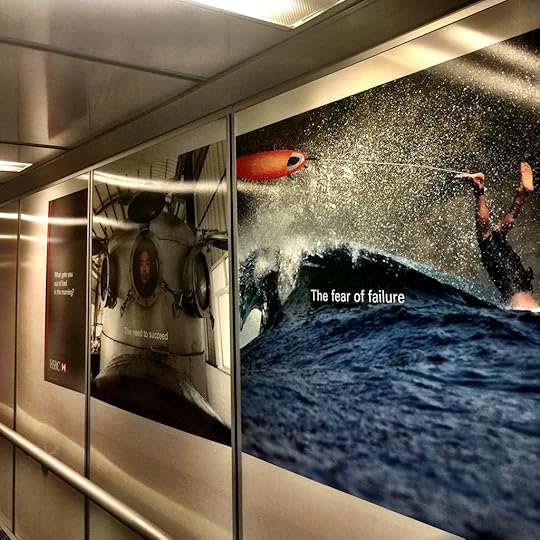
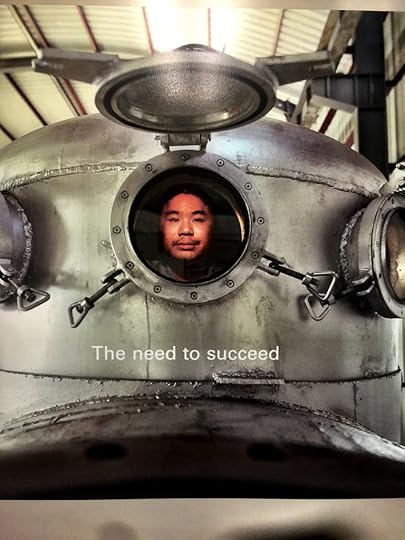


There’s work towering over you like a toppling avalanche about ready to bury you a couple feet deep, mocking you to go ahead and just try to get of bed. There’s bills stacked up like a deafening demand. There’s people counting on you and you’re counting on someOne stronger than you to get you through.
Why in the world do you get out of bed in the morning?
I’m pretty sure that I don’t get out of bed in the morning for any purring feline and I ain’t got no rocket ship or a hankering to go launching off into the cosmos and, quite frankly, I’ve never quite had the gumption or the backbone to take on any looming wave while trying to balance on a defying sliver of fiberglass.
Standing there before the billboard and it’s haunting question, it comes as a beat under my feet, a rhythm down the street, the question that’s begging an answer, and I want to arrest a steady stream of blank-faced commuters and ask them if they know, want to ask of old men on park benches and kids on park swings and mamas at sinks with young ones slung up on tired hips and the brave who get out of bed and alone and face their own uphill road: Why — why do you really keep getting out of bed?
Do you find your feet because you’re driven by a relentless fear of failure or beaten down by the need to succeed or do you hit floor for the love of a ball of fur?
Nothing is more necessary than finding God and falling in love and deeper into Him.
Love decides.
Love decides everything.
What you are in love with decides what you live for.
What you are in love with decides what decides what you get out of bed for.
Fall in love with the Hands that shaped your heart, that cups your face, that trace your scars, that caress you with grace. Fall in love with His face in a thousand faces, in the baby that meets you at the crib rail and the teenager that doesn’t want to budge and man that find that never fails to put feet to the floor and find his Levis and the back door to brave the world for Love.
![VMAQ-2 Marines return from Afghanistan [Image 1 of 3]](https://i.gr-assets.com/images/S/compressed.photo.goodreads.com/hostedimages/1474707158i/20633286._SX540_.jpg)
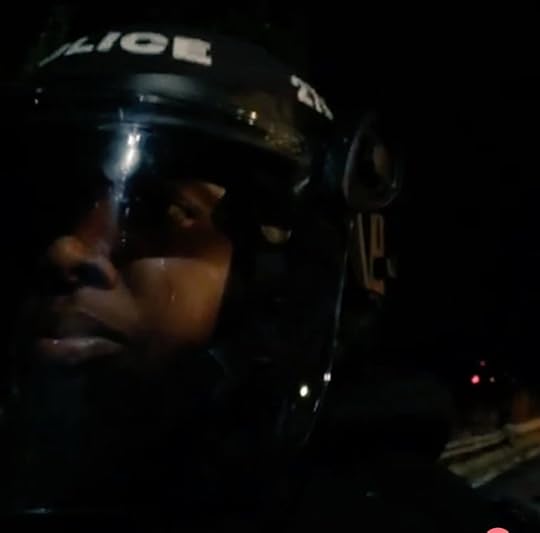
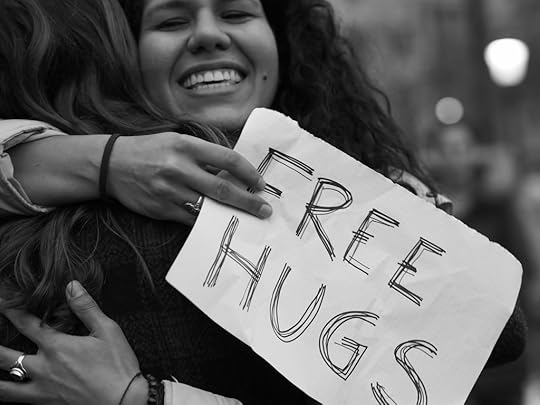
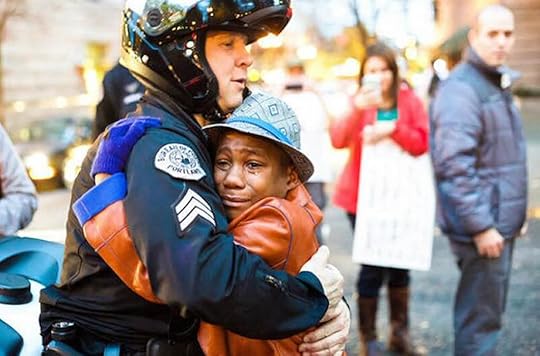
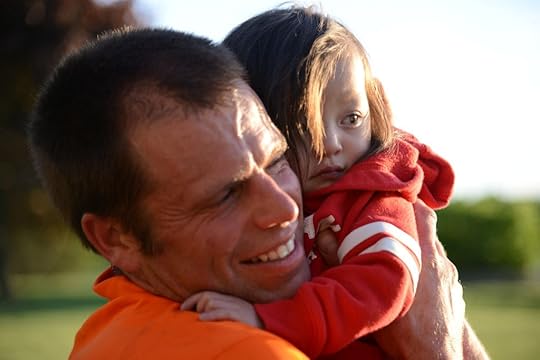
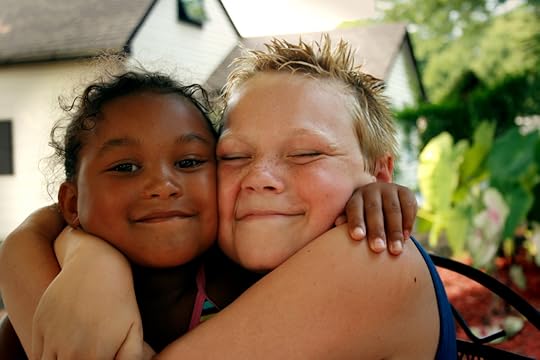
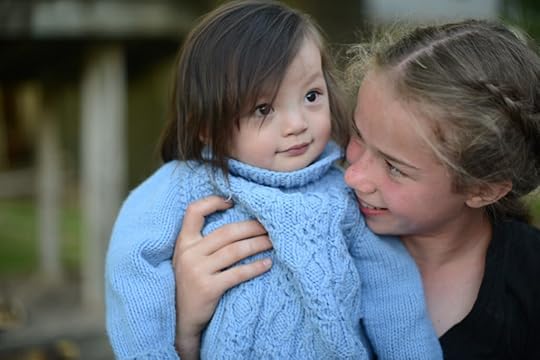
Fall in love with the One who fills your lungs with this breath and all these people and this sky and all this light, all this glorious light.
You have to fall in love because this will get you up and keep you going every day.
Because —- Love decides.
And Love isn’t about agreeing with someone, it’s about sacrificing for someone.
Love decides everything —- which is another way of saying, Sacrifice is the essence of everything.
Fall in love, fall into sacrifice, and you will always rise.
Go fall in love with grace and mercy and the only One who has ever loved you to death and back to the realest life —- because the world is begging us all to get out of bed and sacrifice for someone hurting, for someone different, for someone forgotten or marginalized, to hold the hand of someone who doesn’t look like us, to lean in and listen to someone angry and grieving and doubting the likes of us, to give a bit of ourselves to those who feel like they aren’t given much real space at the table.
Read the headlines, read your news feed, and then defy the dark and go fall in love with kids raised in different neighbourhoods than yours, fall in love with God in the faces that tell stories different than yours, fall in love with people who think and live and walk in circles far different than yours. Sacrifice for someone so your sanity, your joy, your fulfilment isn’t sacrificed.
Sacrifice will always leave you the most satisfied.
Fall in love, stay in love, stay sacrificing, and you live the most satisfied.
What you are in love with in life —- decides everything about your life.
Love decides everything.
The sun can rise, and we all could rise, falling around each other, falling all around, healing rising.
Photo Credit, Photo Credit, Photo Credit, Photo Credit , Photo Credit

September 21, 2016
the other kind of miracle: the one you don’t think to pray for
You may not know Jenny Simmons by name, but there is a good chance you know her music. Songs like What Do I Know of Holy, Hope Now and This Little Light of Mine have found their way onto the airwaves and into the hearts of a generation of Christian music listeners. A lover of music and people, she has a knack for seeing God’s redemptive hand at work in the world around us, even when the world around us feels awfully broken. Jenny doesn’t shy away from the hard questions of faith. Like what happens when the miracle you pray for doesn’t happen? Instead, through her own grief and loss she stands as a bold reminder that God is never absent; God is always at work healing and making us well. Even if the miracle we pray for doesn’t come to pass. Her ‘half-baked’ miracle stories make me laugh and remind me to be on the look-out for God’s healing touch which so often comes in completely unexpected ways. It’s a grace to welcome Jenny to the farm’s front porch today…
My dad’s mom died in April as they were painting her toenails.
It didn’t matter if Mamaw was ever getting out of that bed again or not; there would be nail polish and perfectly primped hair.
Three months later, my mom’s dad was next. Losing Grandpa wrecked me.
Life can be so deathy.
After Grandpa’s funeral my mom said, “Enough with dying, on to living!”
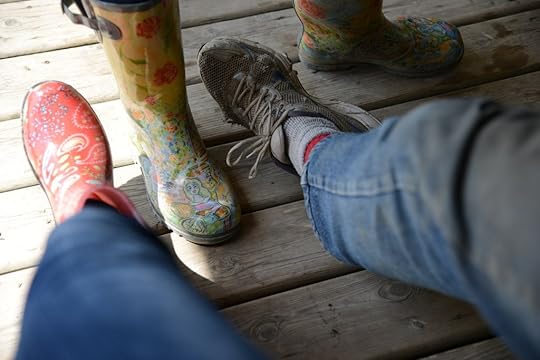


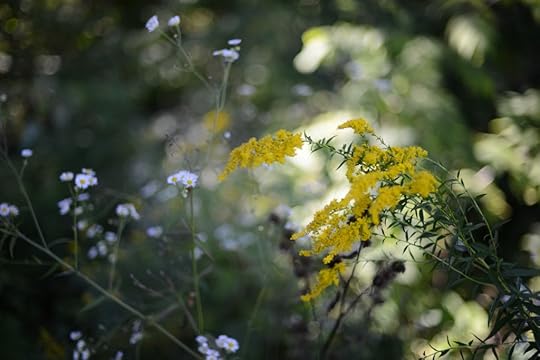


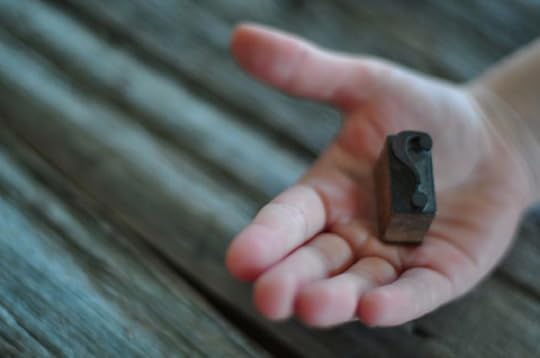
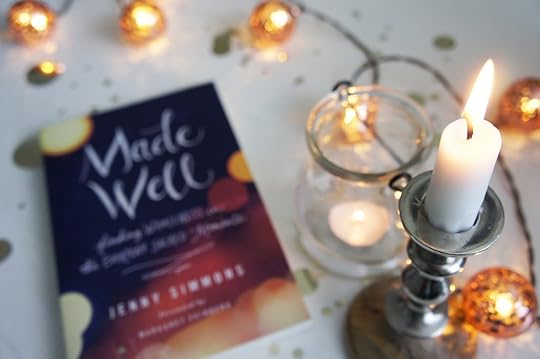
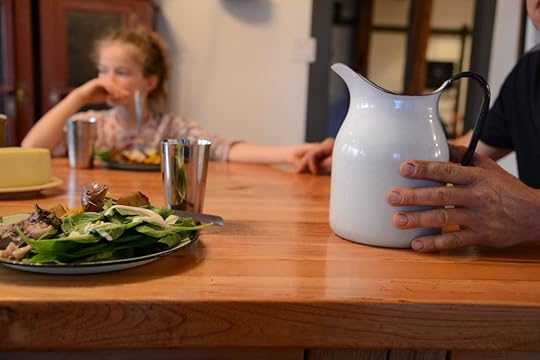

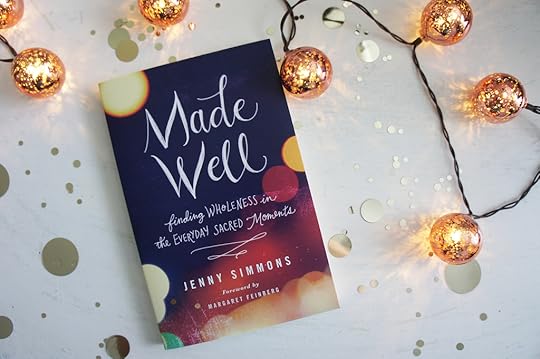

We turned our attention to my baby sister Sarah, who had made peace with the fact that her one biological daughter would probably be the only child she could give birth to. She and her husband were pursuing adoption and waiting to be placed with a child when they found out they were pregnant. With twins.
Two beautiful baby girls were on their way and our family was ecstatic.
But three weeks after Grandpa’s funeral, Sarah’s water broke. She was only seventeen weeks pregnant.
Although the babies were given little to no chance of survival, the doctors began aggressively treating her with antibiotics to ward off infection, hoping to keep the girls in utero longer. After nine days of treatment and no improvement, the doctors said it was hopeless. It would only be a matter of days before labor began and the girls passed away.
But labor never began.
For six agonizing weeks the girls lived. They grew strong, hiccupped inside their momma’s ever-widening belly, and kept us on our knees praying for a miracle.
We were told if they could hang on, there might be a chance.
Everything in me begged, pleaded, and bartered with Jesus for a miracle.
On the morning of October 2nd, Sarah woke up at death’s door. When her water broke, it left her highly susceptible to infection, and her body had finally succumbed to the possibility. She was riddled with infection and so sick she could not be operated on.
She had to give birth to the girls naturally, knowing that at twenty-three weeks her babies would die as soon as they came into this world.
Maggie Jane and Ellen Olivia were born at 7:30 p.m. on October 2, 2014. They died moments later in my sister’s arms.
The miracle we prayed for hadn’t happened.
***
I came home from Maggie and Ellen’s funeral unsure of how to step back into normal life.
The better part of the year had been spent on dying, and it felt daunting to relearn how to start living.
Five days after the funeral, I told my husband I was probably not a good candidate for a date night. Perhaps he could ask a friend to go see Paul McCartney with him instead of me? But Ryan insisted. He knows how deeply music impacts my soul.
We made our way to the tippy-top of the arena to find our nose-bleed seats. They were the only tickets I could afford when I bought the surprise Father’s Day gift ten months earlier.
And that’s when a girl walked directly up to us and said, “Hey! Are you guys excited about the concert tonight?!”
We had no idea who she was or why she was talking to us.
Ryan smiled politely. “Yeah. Can’t wait. How about you?”
“Are you big fans?” she asked enthusiastically, with jazz hands.
I was so annoyed.
Pretty-happy people are the worst when you are grieving.
Ryan began to rattle off the names of songs and albums. Then she looked me straight in the eyes and said, “Great. You looked like the right couple. Take this and go fast—these are much better seats. Floor seats!”
She thrust a white envelope into my hands and disappeared. Floor seats to the sold-out Paul McCartney show—was this really happening?
We made our way to the bottom, found an older man serving as an usher and I handed him the unopened envelope.
He pulled the tickets from the envelope, and a huge smile broke out from ear to ear. “So you are the lucky lady in the house tonight!” he exclaimed.
And with those ten words my heart stood still and the tears came spilling out.
I looked at him and shook my head ‘no’.
He didn’t need to know the pain I was walking through—how five days earlier I watched my dad carry Maggie and Ellen’s tiny casket into the rain, kneel down on a green tarp and lower his grandbabies into the wet ground.
I apologized for the tears and simply said, “It’s been a hard week.”
“Well, tonight is your lucky night then, honey! Before our biggest shows they send an intern upstairs to give away a pair of front-row seats. Front row! Out of fifteen thousand people, they picked you.”
His words rang in my head. They picked you.
God whispered back, I picked you.
***
Some people are made well through running, baking, painting or hiking.
I listen to music— it heals me.
So I knew in that moment, this was the most extravagant way God could reach down from heaven, scoop me up, and begin to bandage my wounds.
For three hours, some of the world’s most famous songs like Let It Be and Here Comes the Sun, washed over me like medicine. A blackbird was singing in the dead of night, reminding me to take my broken wings and learn to fly.
It wasn’t the miracle I prayed for, but it was a miracle all the same. A completely other kind of miracle.
Something in me began to mend in those moments. The way a Band-Aid placed on a wide-open cut immediately begins to bring the wound together and bind it, the songs began to bind broken bits back together in my heart.
It seemed God Himself had orchestrated an evening for me in a way that only the Great Physician could. Emmanuel showing up in the hardest moments, holding my hand.
Sometimes healing happens in ways we never imagine.
While it may seem like a half-baked miracle—the one that comes without the physical cure we so often hope and pray for— the miracle of healing is that we can be made well and whole regardless of what happens to our bodies or the outcome of our life situations.
Healing happens all the time, even if a cure doesn’t.
We are invited to be made well even when the broken things don’t get put perfectly back together.
After the divorce, the funeral, the abuse, the lost job – after the miracle you prayed for doesn’t come to pass.
Even in those spaces, wholeness can come again and we can be made well.
I know what happens now when the miracle you pray for doesn’t come to pass.
Healing happens — if you let it.
Jenny Simmons is a dynamic storyteller and lover of people who sees God’s redemptive hand at work in the world around her. She is a sought-after musician and speaker who has garnered a devoted following. As the lead singer of the former band Addison Road, Jenny traveled the country performing alongside her husband, Ryan, for over a decade.
For anyone struggling on the journey toward wholeness, Jenny Simmons offers a resting place and a friend along the way in her book Made Well: Finding Wholeness in the Everyday Sacred Moments. With personal insight into emotional pain, she invites you to encounter a God who is working out your restoration–often in surprising ways. Her humorous and inspirational prose lights a path toward wholeness. I believe this is a needed must read for many of us.
[ Our humble thanks to Baker for their partnership in today’s devotion ]

September 20, 2016
when you don’t feel like you can be loved: how to practice the presence of God
Yeah, so Brother Lawrence has his sacred spuds.
And I’ve got this bag of rotting carrots pulling up a burial blanket of fleecing mold in the bottom of the fridge —
and a bunch of girls making brownies and a sink overflowing with a motley crew of pots that have lost handles.
You can lose your precarious way by 10 in the morning.
Yeah, they can crank the speakers right up on Sunday morning and play the worship music so loud your inner cochlear quakes for mercy and they can flash the 3 point outline in pixels up there on the screen before the final prayer —- but everybody ends up just going home to the kitchen to find something to eat.
Brother Lawrence and his potatoes are on to something….
Theology can be talked about on Sundays, recorded at conferences – but it’s lived in kitchens or it dies at tables.
Doctrine in the kitchen is doctrine in real life.
Don’t belittle everyday pots and pans — they are the means to carry theology into the everyday of our lives.
The mother in the kitchen is the one who can actually give life to the words of the speaker on the platform. Platform words are dead words – until brave people live them out in the kitchen.
Two cousins pour and stir over the stove, loud and lovely I count out a bunch of sweet spuds across the counter. There is light at the window.
What had that Brother Lawrence said?
“The time of business does not differ with me from the time of prayer.
And in the noise and clatter of my kitchen, while several persons are at the same time calling for different things, I possess God in as great tranquility as if I were on my knees.”
And, yeah, there are kids and there is loud and there is clatter — but this is all that matters:
When you have an overwhelmed world, you don’t have to have an underwhelmed soul — if Christ fills the thoughts.
Exhaling can feel like the beginning of a divine conversation. I exhale again. The girls measure out the butter, ask for a spatula. I rummage through a drawer looking for the peeler for the sweet potatoes.
God’s presence needs no practicing because God’s presence has no end.
God presence needs no practicing because it’s perfect and it’s present everywhere.
God’s presence needs no practicing – we’re the one who need to practice waking to it.
God’s presence doesn’t need practicing – His presence needs to be breathed.
You don’t practice His presence. You practice being present to His presence in this present moment. Practicing the presence of God is the practice of self-discipline.
In the midst of everything calling for my attention – the point is to never stop leaning into Who is calling me.
“Can you find the 1/4 cup?” Shalom’s holding the recipe card.
“Got it!” Her cousin laughs, holds vintage orange tupperware up like a trophy.
I peel another strip off a sweet potato — and there it is, like a peeling of the heart:
You miss Jesus – when you don’t look for Him in the right places….
Your soul misses Jesus when more time is spent on Facebook than face in the Book.
Your soul misses Jesus when more time is spent on Instagram feeds than feeding on His Word.
Your soul miss Jesus when more time is spent on Twitter chats than chatting with Jesus whom you claim to follow.
Balanced social media can be a soul meal; too much social media can be soul suicide.
The girls lean into each other over a 9 by 13 pan. I can feel that, how a soul can do that.
Every Christ-follower is in the same business — to kill busy-ness and make it your business to talk endlessly with God.
It’s like the rhythm of breathing:
His presence. My gift. His presence. My gift.
The girls lick out the bowl, and a big brother comes grinning for something to feed his hunger.
And there is light across the counters.
Across the table, across the cutting boards, across the potatoes —
there is this Light that can saturate anything.

September 19, 2016
how what you didn’t want… can be the way He makes dreams come true
So there was this kid named Riley — and she kinda wasn’t like the other kids. She sacrificed birthdays and Christmas gifts in order to pay for cross-continent trips to Kenya, where she cleaned up infants who were diaper-less and covered in filth. Fed babies with medicine cups because no bottles were available. And fell head-over-heels in love with the country and its people. And then at age sixteen — something completely upended her world. Devastating news. It’s a grace to welcome Riley to the farm’s front porch today…
guest post by Riley Banks-Snyder
Branson, Missouri, late September, on my lunch hour.
Like I’d done every other school day recently during the break between classes my junior year, I pulled out my phone to text my mom one question: Did you find out?
Today, finally, her answer was different.
>> Yep. I found out.
>> Tell me!!
>> It’s not something we can text about.
>> Let’s talk right after school.
>> Don’t worry. Love you.
Waiting for the MRI results had felt excruciating every day.
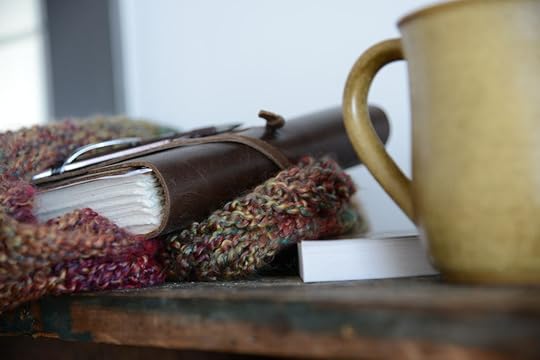
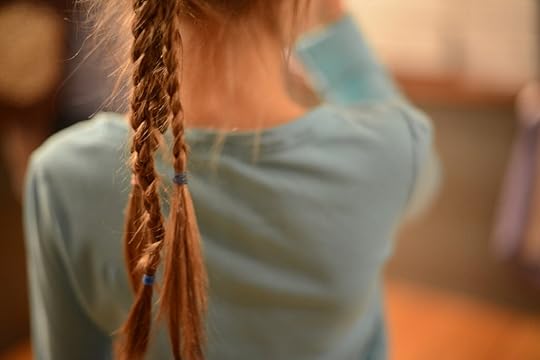
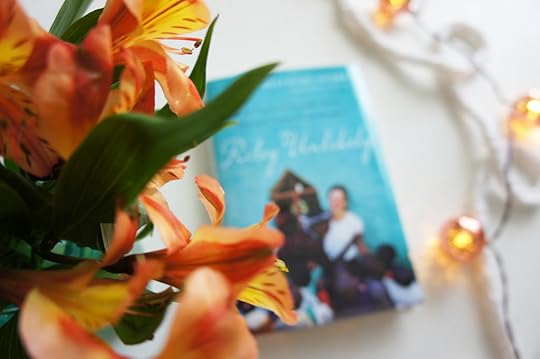
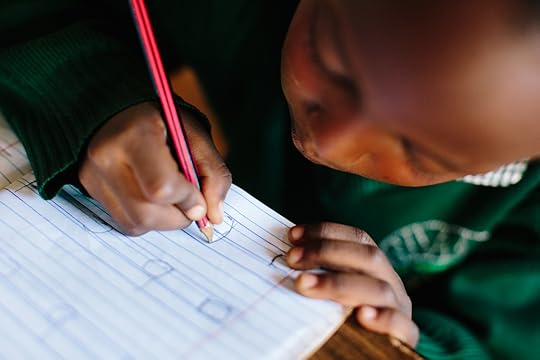
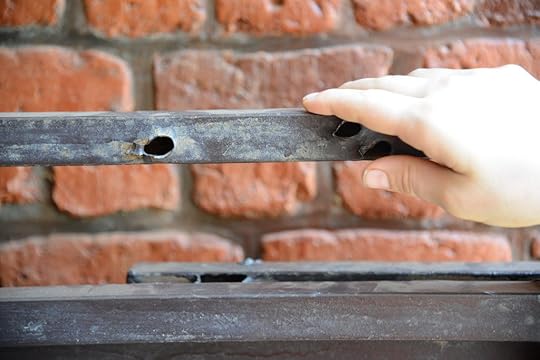
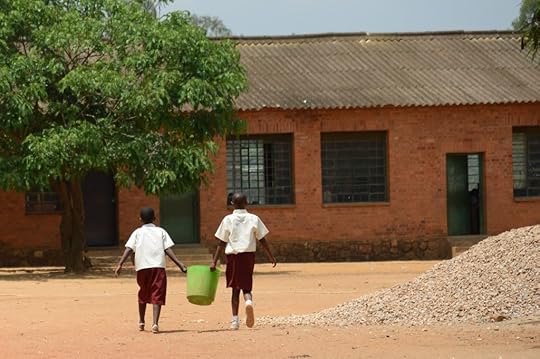
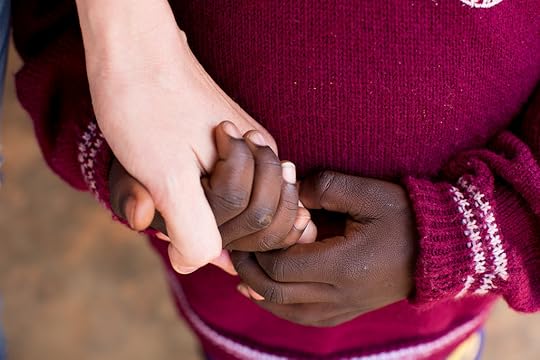
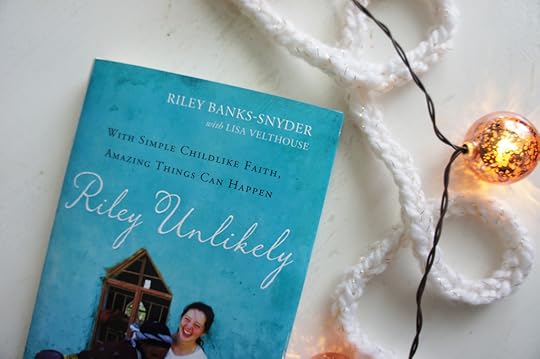
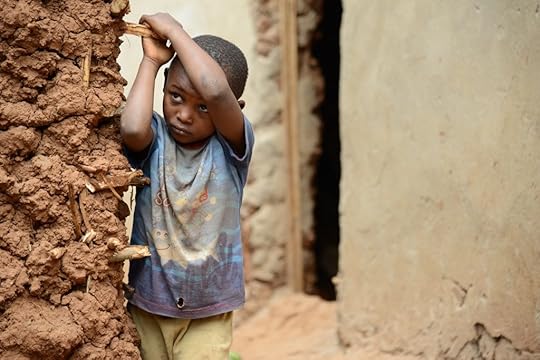
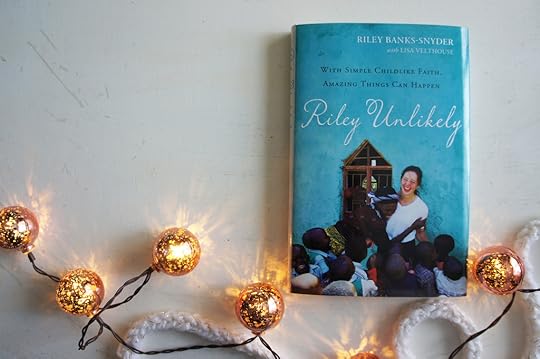
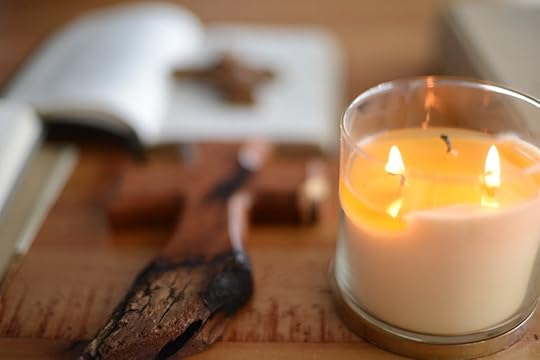
That’s why, now that I knew they were in, an afternoon of class and practice seemed endless.
That’s why, the minute volleyball let out, I bolted through the locker room with my gym bag at lightning speed.
The whole way home, I prayed. Please, God. Please, God. I was already calling for my mom before I made it halfway through the back door.
She was sitting at the kitchen table, waiting. There were MRI images and some documents spread out in front of her.
“Hi,” I said breathlessly, rushing to join her at the table. I took off my backpack and sat down in a single motion.
“Hey.” She smiled, sort of—I couldn’t quite read the expression. She sighed and squinted at me a little. “Are you ready for this?”
“Yeah.”
“You sure?”
I nodded.
“Ok.” She took a deep breath and exhaled.
She delivered the easy parts of the news first: that my condition was something I was born with, that it affects the center of a woman’s body, and that the diagnosis explained a lot, from my dizzy spells and my bulging discs to my heart flap and every other medical puzzle I’d faced in the past few years.
But my mom understood that the biggest question I had right then was the one sparked by my ultrasound: Is it really not there?
Without any drama or delay, Mom reached for one of the documents and one of the big images on the table. She put them both directly in front of me, pointing to five words printed at the top of the document: Mayer-Rokitansky-Küster-Hauser Syndrome. Then she laid out the situation just as starkly as it was.
“You have this disease,” she said. “It’s known as MRKH, and basically what it means is that you can’t have children.”
I blinked. I swallowed. “Never?”
She shook her head and sighed again. “You’ll never be able to.”
Things in my head started to swirl. “How did the MRI tell us that?”
My mom pointed to two cloudy shapes near the left and right edges of the image.
“What this shows is that you have two ovaries, here and here, but your uterus is supposed to be right here, and it just isn’t.”
There was a long pause as she looked into my confused face. Then she continued.
“Your uterus is what the ultrasound tech couldn’t find, and now this MRI is confirming that it’s missing. This is the big marker for MRKH, unfortunately: women who have the disease are born without a uterus. So this is how we know that you have it.”
One more time, she let the news sink in. “I’m sorry, Ri.”
For a long time I didn’t say anything. Even with all the strange symptoms I’d been having, MRKH still caught me completely by surprise. I would’ve expected it about as much as I would’ve expected a fireball to fall from the sky and crash-land next to me.
Crash, yes.
When something like this comes onto the scene, it arrives with too much force, too much speed, and too much heat to just touch down smoothly.
Instead there’s a collision. An explosion. A smoldering mass of debris.
I’ve never been the sort of person who’s easily halted by much of anything, but my diagnosis stopped me cold. Even a while later, after the initial shock began to taper off, the reality of my disease still felt impossible to comprehend.
I couldn’t figure out how I would deal with it. I didn’t have a clue how to even start trying.
A few weeks after my MRKH diagnosis, I got up the nerve to tell my friend Kassadee what was going on. I’d been isolating and withdrawing long enough, and I decided it was time to open up. After all, if anybody could help me figure out how to move forward with this thing, my best friend ranked at the top of the list.
Over the years, Kassadee and I have gotten to know pretty much everything there is for two young women to know about each other. Her mom has a rare disease of unknown cause that includes chronic pain. I’ve seen the strength of their faith put on display as they trust God in the midst of questions and suffering. That was already inspiring to me, long before my MRKH made it something I could relate to personally.
On the day of our meeting, I got to the coffee shop a little early, with time enough to claim a quiet booth in the corner. Kassadee arrived a few minutes after me. After ordering our drinks, we sat down, took one sip each, and looked at each other. For a few seconds, we both waited. Then I took a deep breath, and the telling began.
I took a page out of my mom’s playbook and said the hardest thing first. “My doctors found out that I have this disease called MRKH, and it means I can’t ever have kids.”
Kassadee’s initial nonverbal response was so kind and concerned that it opened the floodgates. For the next two hours, we talked about everything.
Well, at first mostly I talked and Kassadee listened. I explained how one doctor’s appointment kept leading to another and another until my diagnosis was in. Then she listened some more while I started processing things out loud, going into detail about how confused, lost, and frustrated I was.
“I just don’t understand why God would let this happen to me,” I told her. “You know how much I love kids, and I know I’d be a good mom, so why this? What did I do wrong? I mean, after all the ways I’ve tried to follow God and serve him, do I really deserve this?”
Kassadee listened patiently. I sighed a big sigh and continued, telling her I’d been digging into God’s Word almost insatiably, looking for an answer or some solace or a little help or just something.
“I know hard things happen to everybody,” I said. “And I get that being a Christian doesn’t mean life will be easy. The thing is—I guess I just really, really don’t understand.”
With that, I stopped talking.
Kassadee took a couple of sips of her hot chocolate, letting everything sink in. Then she put down her mug and leaned toward me over the table.
For the next few minutes, Kassadee recounted some of the ways that she and her family had interrogated God over the years, wanting answers different from the ones they were getting. She acknowledged how hard it is to handle disappointment, especially when there’s no reason to expect it’ll go away.
“You know, Riley, I just keep thinking about Jeremiah 29:11. For I know I the plans I have for you … plans to prosper you and not to harm you, plans to give you a hope and a future.
I keep thinking that when you were 13, you went all the way to the other side of the world and fell in love. God brought you to a place where there are so many orphans—so many kids without moms—and now here you are, not able to have children of your own.”
She bit her bottom lip for a moment, then shrugged slightly. “Maybe all this is happening because God is telling you something about your future. Maybe He called you to Kenya because it’s an opportunity to care for more kids than you could ever have yourself?”
There in the coffee shop, in the moment when she brought up the orphans and Kenya, it was just a whiff of an idea to me.
Everything else from our conversation still felt too raw, and I was nowhere near ready to digest a new perspective.
But in the days and weeks that followed, I kept hearing Kassadee’s words over and over in my head, and I started to experience them like a long, low rumble—like a quake going right down the center of me.
And for the first time in a while, I started to understand God’s purpose in my diagnosis.
I serve an amazing God who is always surprising me.
He is always a step ahead.
If I couldn’t have children — What if… Kenya was to give me a thousand children?
God reveals His plan at the perfect time — just as He always does.
And all there is to do — is to simply — bravely — follow His plan with child-like faith.
Riley Banks-Snyder is the founder and executive director of Generation Next, a non-profit she established at the age of 14. Generation Next has built and oversees a school in Kibwezi, Kenya, and runs a thrift shop and food pantry in Branson, Missouri, to fund operations. Riley’s heart is for Africa – and for reminding every young person that they can do more to change the world than they could ever imagine.
Riley Unlikely is the inspiring story of Riley Banks-Snyder, who first traveled to Kenya at age 13, and has been back every year since. Now, as a young adult, Riley is raising money to build a complete learning complex in Kibwezi, Kenya for those who have nothing. Riley Banks-Snyder wasn’t like the other kids. She wasn’t the bravest, she wasn’t the strongest, and she definitely wasn’t the most outgoing. But when God called, she listened, and said yes. God writes surprising stories in the lives of those who follow Him—including yours. Riley Unlikely will stir you to make a difference in your own world and around the globe — pick up this one for every young girl you know — and for the yes in you that’s just waiting for your courage.
[ Our humble thanks to Zondervan and their partnership in today’s devotion ]

Ann Voskamp's Blog
- Ann Voskamp's profile
- 1369 followers



